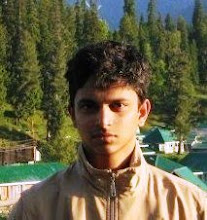A assortment of young stars piece together an opera performance in Panjim
Nigel Britto
The divine but jejune and partially-extended strains of the classic Dona Nobis Pacem served only as starters. Perhaps, its beginning and end were too far apart. As Europe celebrates the life of the legendary Frederic Chopin this week, Goa had a celebration of a different sort as the state's future classical maestros strutted their stuff at a dazzling display of talent at Kala Academy on Tuesday.
The director was vocal instructor Juliana D'Sa, whose mission is to popularize classical music in Goa. In doing so, she dug into the formidable pool of young talent she has shaped over the years and concocted this presentation, which she compared to trying to make up a small bouquet of flowers from a large garden. As a result, the menu was anything but predictable.
The variety on display was evident from the range of songs presented, from Handel's "He shall feed his flock" to "Adele's Laughing Song" from Strauss's "Die Fledermaus" (brilliantly rendered by Chriselle Mendonca) to the classic "Somewhere over the rainbow". Clearly, a lot of work went into song selection. "I chose each song carefully, based on the performers and what they were comfortable with," D'Sa later said, adding that the biggest difficulty was deciding what to leave out. The second-biggest difficulty was fighting the nasty little sore throat virus that made a bee-line for her singers.
The free-for-all show was fully funded by the students' parents. Thankfully, it didn't have a 'chief guest', and as a natural consequence, started on time to the delight of the packed auditorium. It then ran like a well-lubricated machine till finish, a spectacular feat considering a vast majority of the performers were school and college-going students without any significant stage experience prior to the show. The accompaniment was provided by a string quartet, comprising Kala Academy's director of western music Teresa Figueiredo and other senior violinists, and later, two pianists.
While the first half boasted a delectable selection of songs, the intensity of the music and the preparation behind it reached its crescendo in the second half, an enactment of Wolfgang Amadeus Mozart's Le Nozze di Figaro (the Marriage of Figaro), which provided the performance its crowing glory. Admittedly, it's a mere shadow to a Broadway presentation, but given the extremely limited human resources here, the play turned out fantastic. The story is that of a countess, her maid Susanna, and the count's man-servant Figaro, who was to marry Susanna, conspiring to get Count Almaviva to forget Susanna and return to loving his countess.
The setting is a garden in the palace of Count Almaviva, with an extravagant Goa-wedding-style backdrop and relevant costumes. The opera's direction is sedulous and its production suave, what with its intrepid eavesdropping, prevarication and Machiavellian scheming among the lead trio; the ballsy and kittenish Susanna (Kim Costa), Figaro (Chernoll Mendonca) and the Countess.
A girl playing a teenage pageboy is a strange twist, but Karla de Sousa pulls of the role of the overly-amorous Cherubino admirably, ably shifting from the jubilant to the cothurnal; and the dramatis personae's masterful delivery and presentation easily obnubilates the play's unusual casting, ostensibly attributable to limited resources. The presentation was enhanced by the string quartet antipodal to the main act, and succeeded in two aspects; the Count regaining his affection for his Countess, and injecting a large dose of steroids into Goa's dormant opera production scene.
D'Sa was elated at the response. "I didn't expect it," she said. And she was even more pleased that her two major requirements of the concert were fulfilled-the popularization of classical music and her students having fun. "I just told them, above everything else, enjoy the music", she said, and that's what the enthusiastic bunch did, because as it ended, she was confronted by her students bitterly complaining that "our show was getting over".
As the curtains dropped and the auditorium lit up again, the question in most minds was "What next". The reticent D'Sa doesn't like to divulge much; but speaking to TOI the following day, she dropped sufficient hints that Tuesday's show was just the beginning, and not merely a flash in the pan.
This article was first published on The Times of India, Goa, in the edition dated February 26, 2010

No comments:
Post a Comment